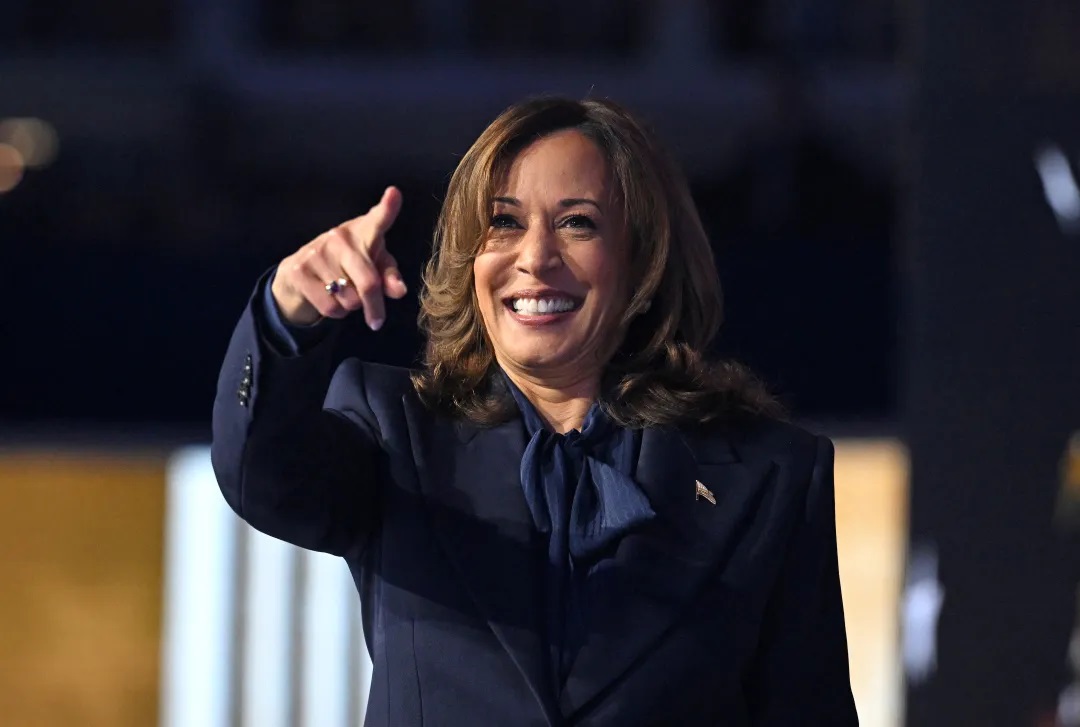Kamala Harris and her Planned Housing Policy

Vice President Kamala Harris gestures after speaking on the fourth and last day of the Democratic National Convention in Chicago. Credit -Getty Images
In a couple of weeks, every eligible ballot in the 2024 presidential election would have been cast. Election officials would have worked long into the night across the country to tabulate millions of votes. Come the morning of Nov. 6, we may finally have an answer to the question that’s been on the lip of every American for the past couple of months “Who’s going to win?”
That is the one question that nobody can answer with any certainty. There is no clear outcome in sight. There are no more debates waiting ahead for Vice President Kamala Harris and former President Donald Trump to share a stage. And there are no major events to circle on the calendar before the polls open. There is only a seeming eternity ahead for a race that lacks any clear favourite. The uncertainty makes these few remaining weeks particularly maddening, amplifying the smallest potential shift as monumental while leaving little room for the race to be fundamentally altered.
Kamala Harris, the daughter of immigrants from Jamaica and India, has become the first Black woman and first person of South Asian descent to accept the presidential nomination of a major party in the United States. If elected, she would be the first female US president.
Vice President Kamala Harris currently runs the most truncated presidential campaign in modern American history and has made lofty promises on issues that polls show voters care most about: the economy, housing, abortion, gun policy and immigration.
Since President Biden dropped out of the race in July 2024, Harris has tried to lay out her policy proposals, walking a fine line in embracing the work she has done as part of the Biden administration and making the case that she would do more than both her current boss and former President Trump to improve people’s lives and livelihoods.
One issue however that is of particular interest to millions of Americans and Coloradans is housing. Housing affordability is a shared problem that is getting worse across the country: 80 percent of Americans living in rural communities believe housing affordability is getting worse in their community, while 72 percent of residents in urban areas feel the same.
Harris has called for the construction of 3 million new homes over four years amid a national shortage of affordable housing, arguing that doing so would help satisfy demand and reduce costs. This would be achieved, her campaign says, by offering new and expanded tax incentives for builders of starter homes and affordable housing, by cutting red tape and streamlining permitting processes that slow construction, and by making “certain federal lands eligible to be repurposed for new housing developments that families can afford.”
She has called for the creation of a $40-billion “innovation fund” to support city and state governments finding ways to finance and encourage construction. Harris is also promising up to $25,000 in down-payment assistance for first-time home buyers who have paid their rent on time for two years — and more generous support for first-generation homeowners whose parents did not own a home. The Harris campaign estimates this could help more than 4 million households over four years.
Harris has said the assistance would come in the form of a tax credit. Experts on the other hand say increased housing supply would not have a big effect on home prices for several years. Economists have questioned the $25,000 down-payment assistance, sounding a warning that it could greatly increase demand before enough new units are built — increasing competition, further inflating housing costs, and driving up the already massive federal deficit.
The $25,000 first-generation down-payment assistance program doesn’t address the underlying issues in the housing market. Offering eligible homebuyers this assistance has the potential to further inflate prices. For example, a house that might originally sell for $200,000 might be bumped to $225,000, creating a wash sale in savings.
The proposal would require congressional approval — which would hinge upon the partisan makeup of the House and Senate after the election. The incentive would be less helpful for first-time buyers in California — where, according to Zillow, the average home is worth more than $773,000 — than it would in states with more affordable housing, like Texas, where the average home is worth about $301,000.
If gaining support for a $40 billion housing market package was tough, Harris’ new $25,000 down-payment assistance program would be even harder to pass. The plan has two levels: first-time homebuyer assistance and first-generation homebuyer assistance.
First-time homebuyer assistance applies only to borrowers who have paid rent on time for at least two years and have not signed or co-signed on a mortgage in the past three years. There are also additional requirements based on your specific situation, like a specific debt-to-income ratio.
The first-generation homebuyer assistance program is more lenient but is very difficult to qualify for. At the most basic level, your parents or grandparents cannot have owned a home to qualify. These restrictions impacts countless younger generations who are struggling to pave their own way. Tough qualification restrictions and little bipartisan support mean this segment of Harris’ proposal could fall flat.
Another component of Harris’ housing proposal is eliminating corporate landlords from purchasing single-family rental properties or using algorithmic software. This has the potential to further restrict supply by impacting the build-to-rent market, which is one of the strongest areas of new construction.
One proposed item is removing tax benefits for businesses that own 50 or more single-family homes. While this may prevent corporations from purchasing properties, it also would slow down major housing developments and neighborhoods.
In addition, the short-term rental market has already seen a decline in occupancy rates. Eliminating algorithmic software pricing would have a direct impact on small businesses operating in the short-term space.
Many of the provisions in Harris’ housing proposal neglect to consider state and local implications. Would the administration micromanage every small county to ensure compliance with new housing regulations? What types of projects would be eligible for funding, and where would individuals go for short-term stays? Like any proposed plan, the details would not be transparent until something is actually passed.






